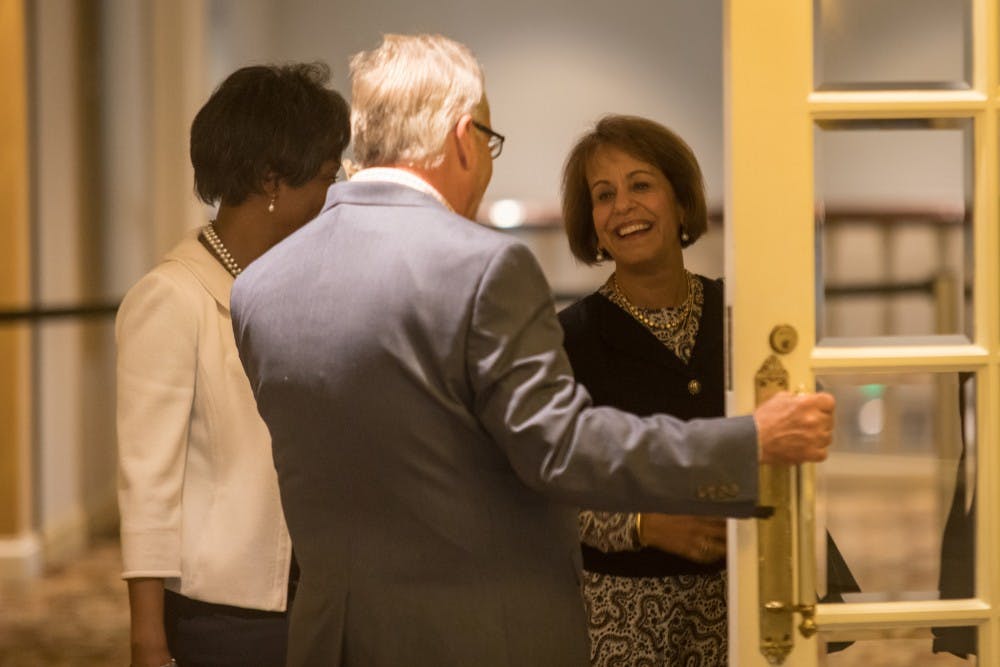It all started with Rick Ross lyrics.
"I live In club LIV so I get the tenant rate ... bottles comin' like its a giveaway," then-UNC defensive linesman Marvin Austin tweeted in 2010.
Amid speculation whether Austin was receiving bottle service at the famous Miami club, Austin's tweet caught the attention of the NCAA, who launched an investigation into UNC football to determine whether players were receiving illegal benefits.
The floodgates to the seven-year saga, which revealed hundreds of so-called "paper classes" offered in the African and Afro-American Studies departments, had been opened.
Developments in the ongoing Silent Sam controversy may have dominated the news cycle during the final year of Chancellor Carol Folt's reign, but the academic fraud scandal was among the first to mar Folt's chancellorship.
In 2012, Folt was serving as interim president at Dartmouth College. Meanwhile, former North Carolina Governor Jim Martin headed an independent investigation into UNC's academic fraud, analyzing enrollment data spanning almost two decades including over 172,000 course sections, almost 120,000 undergraduates and almost 13,000 instructors, according to the report.
Martin's report found 216 classes with proven or potential anomalies. The report also emphasized that the athletic department did not manufacture the fraud. The academic department was to blame, Martin told the UNC Board of Trustees in a meeting presenting his findings.
In September 2012, then-Chancellor Holden Thorp announced plans to step down. In April 2013, Folt was announced as the University's first female chancellor and inherited one of the most notorious scandals in UNC history. Folt may not have been involved in the formation of the academic fraud, but she was now part of the cleanup efforts.
In 2014, the UNC system launched another investigation, this time conducted by former U.S. Justice Department official Kenneth Wainstein, who Folt and then-UNC-system President Ross nominated. Four months later, the NCAA reopened its investigation to investigate "additional people with information and others who were previously uncooperative."




